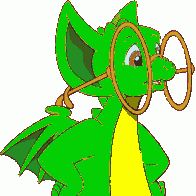Music Theory
When I was growing up, I "learned" cello and piano. However, I was never taught any music theory. Thus, I found myself struggling to memorize the entire fingering for any piece. In effect, I did not learn music, I simply learned two instruments.
As it turns out, with a simple introduction to music theory, I could have had a far better time of it. Of course, as with everything triessentialism simplifies (music theory, psychology, philosophy, metaphysics, sociology, economics, etc), since it didn't exist, I had to build it.
Necessity is the mother of invention.
There are three basic parts to music: The Beat, The Chords, and The Melody. (I know this may sound like an oversimplification to those of you with formal training, but bear with me.)
The Beat represents the Physical. It gives a physical presence to the music, as can be attested to by anyone who has ever ridden next to a car with great bass. Percussion is the usual carrier of the beat, but other instruments may take the job. The Beat tells you if it's jazz, rock, or a hymn. The Beat can be steady and machinelike, it can sound like a heartbeat, it can speed up or slow down, and it can change completely when it hits the bridge. The Beat is the What of the music.
The Chords represent the Emotional. They are the background, the mood. The chords tell the audience what to feel in general. With dissonance, the composer makes the listener uneasy; with perfect harmony, the listener feels relief, and even joy. Within the context of the key, and even several keys, the Chords tset the backdrop for the Melody. The Chords are the Why of the music.
The Melody (the primary voice) represents the Logical. It is the foreground, the story told against the backdrop of the Chords. Have you ever felt that the lead guitar was a singing voice without words? The Melody is the words of the story, a universal language. If the lead is a singer and not an instrument, even better; in most forms of song, the singers present the Melody, or several Melody lines.
The heart of Triessentialistic music theory is this: On the Beat, the Melody plays a note present in the Chord. Off the Beat, the Melody generally plays notes in the same key, and usually notes inbetween the on-Beat Chord hits.
Other implications:
Drums and other forms of percussion are generally found heavily in Physical-focused cultures. It is stereotypical to portray "the primitive natives" banging on skin drums, but instinctively we figure the natives are Physical-focused.
Songs built of Chords and Melody without a heavy Beat, without percussion, and generally without Beat variation, are considered more aetherial, in some cases more "spiritual." This makes sense; the combination of Logic and Emotion has long been considered "spiritual" within Triessentialism.
When the same Chord is in play for two measures, the effect is often hypnotic.
More later maybe,
As it turns out, with a simple introduction to music theory, I could have had a far better time of it. Of course, as with everything triessentialism simplifies (music theory, psychology, philosophy, metaphysics, sociology, economics, etc), since it didn't exist, I had to build it.
Necessity is the mother of invention.
There are three basic parts to music: The Beat, The Chords, and The Melody. (I know this may sound like an oversimplification to those of you with formal training, but bear with me.)
The Beat represents the Physical. It gives a physical presence to the music, as can be attested to by anyone who has ever ridden next to a car with great bass. Percussion is the usual carrier of the beat, but other instruments may take the job. The Beat tells you if it's jazz, rock, or a hymn. The Beat can be steady and machinelike, it can sound like a heartbeat, it can speed up or slow down, and it can change completely when it hits the bridge. The Beat is the What of the music.
The Chords represent the Emotional. They are the background, the mood. The chords tell the audience what to feel in general. With dissonance, the composer makes the listener uneasy; with perfect harmony, the listener feels relief, and even joy. Within the context of the key, and even several keys, the Chords tset the backdrop for the Melody. The Chords are the Why of the music.
The Melody (the primary voice) represents the Logical. It is the foreground, the story told against the backdrop of the Chords. Have you ever felt that the lead guitar was a singing voice without words? The Melody is the words of the story, a universal language. If the lead is a singer and not an instrument, even better; in most forms of song, the singers present the Melody, or several Melody lines.
The heart of Triessentialistic music theory is this: On the Beat, the Melody plays a note present in the Chord. Off the Beat, the Melody generally plays notes in the same key, and usually notes inbetween the on-Beat Chord hits.
Other implications:
Drums and other forms of percussion are generally found heavily in Physical-focused cultures. It is stereotypical to portray "the primitive natives" banging on skin drums, but instinctively we figure the natives are Physical-focused.
Songs built of Chords and Melody without a heavy Beat, without percussion, and generally without Beat variation, are considered more aetherial, in some cases more "spiritual." This makes sense; the combination of Logic and Emotion has long been considered "spiritual" within Triessentialism.
When the same Chord is in play for two measures, the effect is often hypnotic.
More later maybe,

